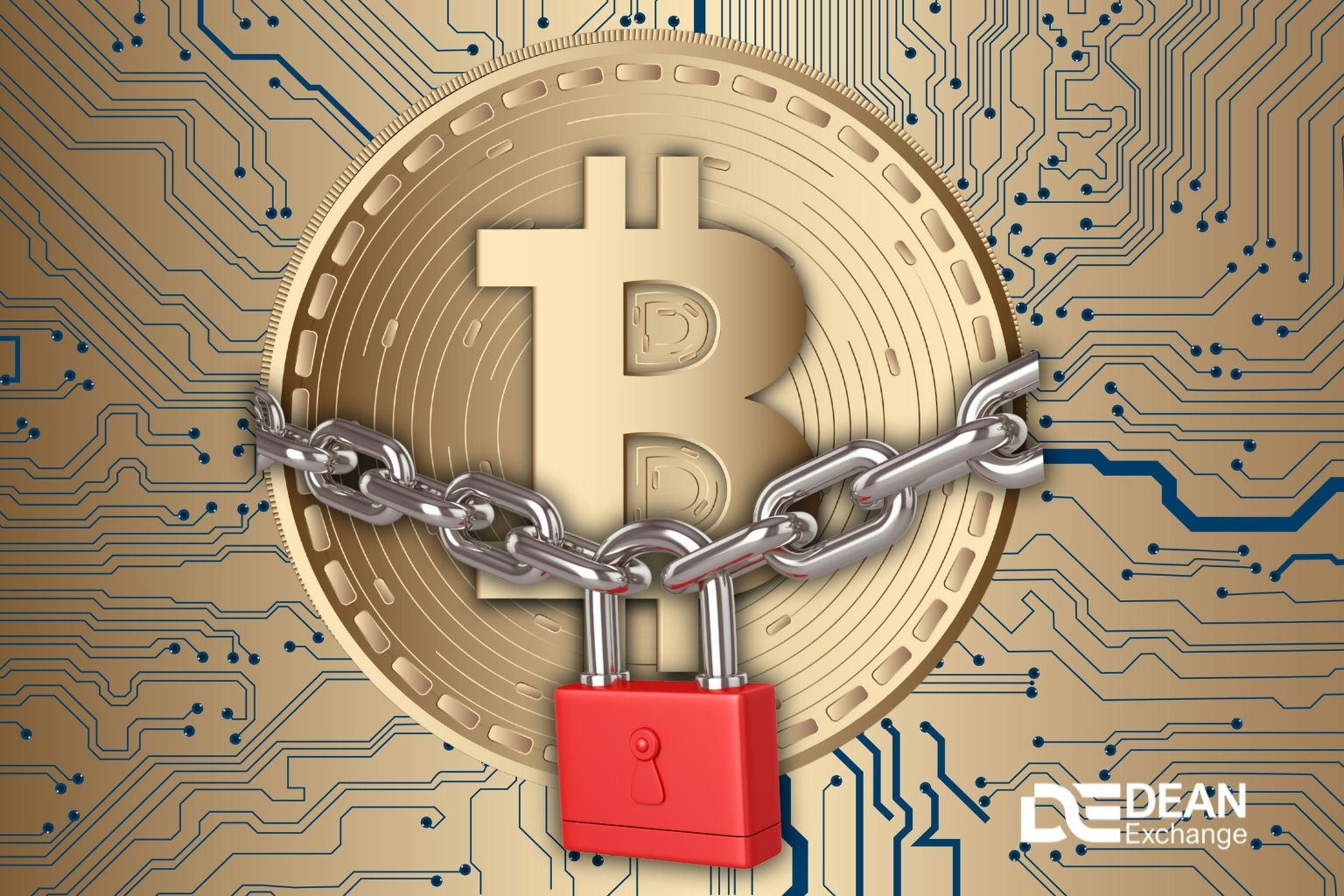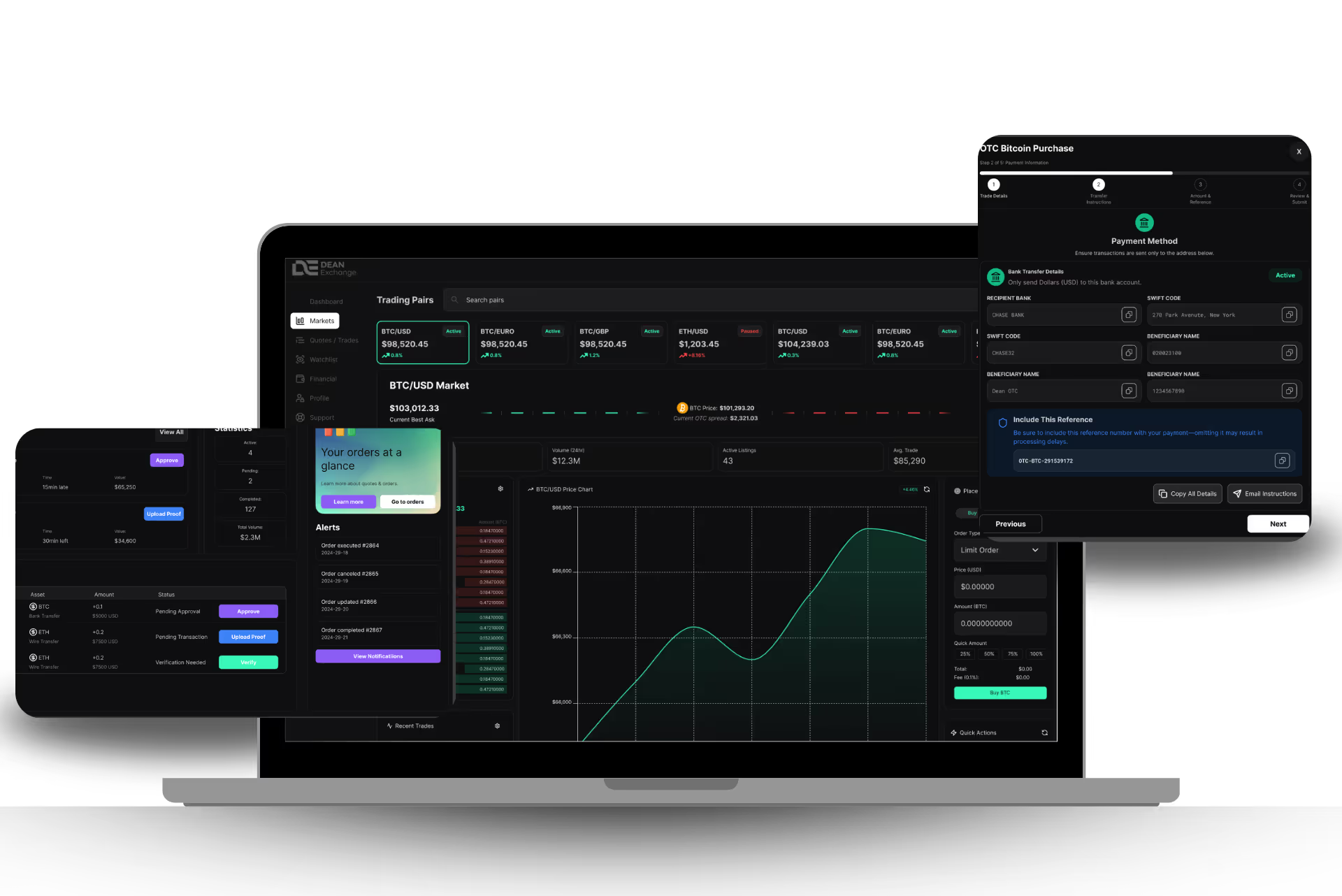By the
This is some text inside of a div block.
This is some text inside of a div block.
•
5
min read

Cryptocurrency empowers individuals with financial autonomy—but with that freedom comes the responsibility of securing your digital assets. Unlike traditional banks, there’s no “forgot password” button if you lose access to your crypto wallet. In the evolving landscape of blockchain technology, crypto wallet security is not optional—it’s essential.
This complete guide breaks down everything you need to know to keep your cryptocurrency safe. We’ll explain different types of wallets, common threats, and actionable tips to protect your seed phrase, private keys, and crypto funds. Whether you're a beginner or an experienced trader, Dean Exchange is here to support your journey with trusted guidance, expert insights, cryptocurrency tutorials, and live blockchain sessions.
A crypto wallet is a digital tool that allows you to store, send, and receive cryptocurrency. Rather than holding physical coins, wallets store private keys—a set of encrypted credentials that provide access to your blockchain-based funds.
Understanding the different wallet types is the first step in building a secure crypto strategy.
Hot wallets are connected to the internet and include mobile apps, browser extensions, and web-based wallets. These are convenient but more vulnerable to hacking.
Examples:
Cold wallets are offline and considered the gold standard for cryptocurrency wallet safety. These include hardware wallets and paper wallets.
Examples:
Understanding the risks helps you stay one step ahead. Here are the most common threats to your crypto wallet security:
Cybercriminals impersonate legitimate websites or customer service agents to trick you into revealing your seed phrase or private key.
Red Flag: Emails or pop-ups asking for your wallet information. No legitimate wallet or exchange will ever request your private keys.
Malicious software can record your keystrokes or take screenshots of your wallet credentials.
Tip: Always use updated antivirus software and avoid downloading unknown files.
Hackers gain control of your mobile number to bypass two-factor authentication (2FA) and access your accounts.
Solution: Use authentication apps (like Authy or Google Authenticator) instead of SMS-based 2FA
.
Your seed phrase is the master key to your wallet. If someone gains access to it, they can take full control of your funds—permanently.
Crypto market trends show increasing theft due to users writing seed phrases on insecure notes or cloud drives.
If you're holding significant assets, transfer them to a cold wallet. Hardware wallets are nearly immune to remote hacks and keep your keys offline.
Dean Exchange Tip: Use a cold wallet to store long-term holdings and a hot wallet for daily trading or decentralized app interaction.
Your seed phrase is your lifeline—guard it like your life savings.
Best Practices:
Never share your seed phrase with anyone—not even "support teams" or "blockchain recovery experts."
Some wallets show or export private keys—use caution.
Browser wallets like MetaMask are popular for DeFi and NFT trading—but also targeted by malware and fake clones.
Safety Checklist:
When you need to trade or cash out, use a regulated and secure cryptocurrency exchange. Look for platforms that offer:
If you're using a decentralized exchange (DEX), always verify token contract addresses and avoid random links on social media.
The rise of decentralized exchanges, NFT marketplaces, and DeFi platforms offers new opportunities—but also new risks. Many scams rely on users unknowingly granting permissions through smart contracts.
Before confirming a transaction:
Dean Exchange Insight: In our live blockchain sessions, we teach users how to inspect smart contract interactions to avoid unauthorized fund access.
Keep Up with Market and Security Trends
Crypto market trends constantly evolve, and so do the tactics used by hackers and scammers. Staying informed is one of the best defenses.
At Dean Exchange, we help users build strong crypto literacy and wallet security practices through:
Learn step-by-step how to set up wallets, secure seed phrases, trade safely, and understand risk in clear, actionable language.
We cover everything from what is blockchain and how wallets work to security trends and phishing scam alerts—designed for all experience levels.
Securing your cryptocurrency wallet isn’t just a best practice—it’s your responsibility as a crypto holder. By understanding wallet types, recognizing threats, and following proven safety protocols, you dramatically reduce your risk.
Blockchain technology is powerful, but it’s also unforgiving when mistakes are made. There are no customer service lines for lost keys or forgotten seed phrases. That’s why education and proactive habits are your best defense.
Dean Exchange is committed to empowering users with the tools, knowledge, and confidence to engage with crypto safely. From step-by-step tutorials to expert-led live blockchain sessions, we help you protect your assets and make informed decisions every step of the way.
Ready to take control of your crypto security?
Join Dean Exchange today and explore our tutorials, community support, and expert sessions designed to keep your wallet—and your future—secure.


Join our newsletter for exclusive insights, breaking crypto trends, and learning opportunities—delivered straight to your inbox.